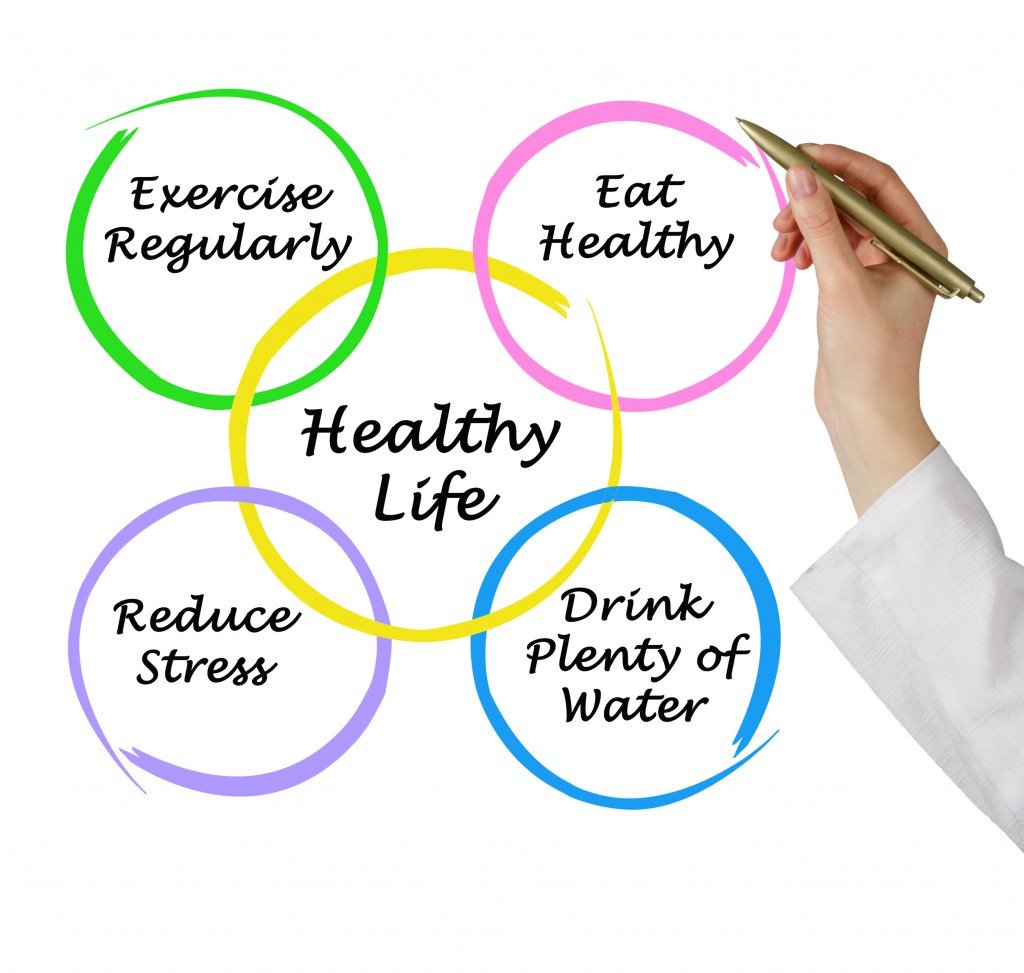 When we are talking of health and wellness, it is not just about health but also about sound psychological (mental) health. Good health can be described as the condition where both our body as well as our mind is working properly. The main causes behind poor health conditions are certain diseases, inappropriate diet, injury, psychological stress, lack of hygiene, secondary lifestyle, etc. Over the past several years, our way of life has changed and we often tend to neglect the importance of a healthy living in one way or the other.
When we are talking of health and wellness, it is not just about health but also about sound psychological (mental) health. Good health can be described as the condition where both our body as well as our mind is working properly. The main causes behind poor health conditions are certain diseases, inappropriate diet, injury, psychological stress, lack of hygiene, secondary lifestyle, etc. Over the past several years, our way of life has changed and we often tend to neglect the importance of a healthy living in one way or the other.
Thus in this article we are providing some of the effective guidelines to the visitors about how they can enhance or augment activities in their life to have a proper and balanced lifestyle; it is not intended to be all detailed but will consist of significant elements that are regarded to be parts of a lifestyle that guide to good health. In addition to the guidelines about what people should do for a healthier living, this article will discuss some of the guidelines about preventing activities that cause to unhealthy living.
Eating (diet)
People eat food for growth and maintenance of health, but we humans have different requirements as infants, children (kids), youngsters, young adults, adults, and elderly people. For example, babies need feed in every four hours until they gradually age and begin to take in more food. Gradually they develop the more normal pattern of eating three times per day as young kids. However, as most mother and father know, children, teenagers, and young adults often snack between foods. Eating is often not restricted to these age categories because adults and elderly people often do the same.
Tips:
- Eat three meals a day (breakfast, lunch, and dinner); it is essential to remember that you should avoid having heavy meals in dinner.
- The bulk of food consumption should include fruits, vegetables, whole grain, and fat-free or low-fat dairy products.
- Select lean meats, chicken, fish, beans, egg, and nut.
- Choose foods that are low in saturated fat, Tran’s fat, cholesterol, salt (sodium), and added sugars; don’t forget to read the labels.
- Avoid soft drinks, sodas and sugar-enhanced beverages because it contains extreme calories.
- Avoid consuming raw or un-cooked meats of any type.
Physical activity and exercise
Physical activity and exercise is a significant factor to a healthy lifestyle. Unhealthy living may reveal itself in obesity, weakness, lack of stamina, and overall poor health that may promote disease growth.
Tips:
- Physical workout can avoid and invert the age-related decreases in muscle mass and strength, improve balance, flexibility, and stamina, and reduce the risk of falls in the elderly.
- Physical workout can help avoid heart problems, stroke, diabetes, being overweight, and hypertension. Frequent, weight-bearing workout can also help to avoid osteoporosis by building bone strength.
- Regular workout can help chronic arthritis sufferers enhance their capacity to perform day to day activities such as driving, climbing stairs, and opening jars.
- Regular workout can help increase self-esteem and self-confidence, decrease stress, anxiety, and enhance mood and mental health.
- Regular workout can help control excess body weight and in some people cause loss of fat.
Mental health
Healthy living includes balanced psychological or psychological health. The following are some ways people can support their psychological health and well-being.
Tips:
- Get enough sleep daily:
12-18 hours for 2 months of age
14-15 hours for 3-11 months of age
12-18 hours for 1-3 years of age
11-13 hours for 3-5 years of age
10-11 hours for 5-10 years of age
8-9 hours for 10-17 years of age and those 18 and above need seven to nine hours of sleep. - Do some mind exercises (read, do a puzzle sometimes during the week).
- Plan to spend some time while talking with your friends and family about different topics.
- Try to make some spare time to do some things that interest you every week (hobby, sport).
- Learn ways to say “no” when something happens that you do not want to do or be involved with.
- Have fun go on a trip with your loved ones.
Avoid tobacco use
Tobacco use is the most essential avoidable sickness and cause of loss of death.
Adverse consequences of tobacco use:
- Tobacco use causes or leads to a large number of cancers in the U.S. In men, 90% of lung cancer deaths are attributable because of smoking; 80% in women.
Cigarettes use causes malignancies of the lung, mouth, lip, tongue, esophagus, kidney, and renal. - Tobacco use causes atherosclerotic arterial disease that can lead to heart attacks, strokes, and lack of blood circulation to the lower extremities.
- Tobacco use causes an estimated 20%-30% of coronary heart problems in the U.S. It also further improves the chance of heart attacks among matters with elevated cholesterol, uncontrolled high blood pressure, obesity, and a sedentary lifestyle.
- Expectant women who smoke are more likely to deliver children with low birth weight.
- Secondhand smoke can cause middle-ear infections (otitis media), coughing, wheezing and respiratory disease, and pneumonia in children, and worsen bronchial asthma in children.
